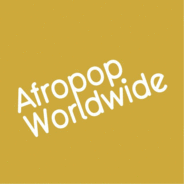Underneath the streets of New York City, in the tunnels and stations of the busiest subway system in the country, there is a thriving music scene. Amidst the noise of passing trains, we meet Papa Fara, a Cameroonian xylophonist and singer, who plays for tips and captures the love of strangers and makes friends with his quick, warm smile. But, behind the smile and beautiful melodies, something is troubling Papa Fara. There’s a reason he’d rather be underground.
Produced by Morgan Greenstreet.
Follow Afropop Worldwide on Facebook at www.facebook.com/afropop, on Instagram @afropopworldwide and on Twitter @afropopww.
Subscribe to the Afropop Worldwide newsletter at www.afropop.org/newsletter/
S2:E9
Afropop Closeup
Distributed 12/26/2017

Lovesongs & BalladenAfrikanische Musik
Afropop Worldwide Folgen
Afropop Worldwide is an internationally syndicated weekly radio series, online guide to African and world music, and an international music archive, that has introduced American listeners to the music cultures of Africa, Latin America and the Caribbean since 1988. Our radio program is hosted by Georges Collinet from Cameroon, the radio series is distributed by Public Radio International to 110 stations in the U.S., via XM satellite radio, in Africa via and Europe via Radio Multikulti.
Folgen von Afropop Worldwide
499 Folgen
-
Folge vom 26.12.2017Underground
-
Folge vom 21.12.2017The (New) Sound Of Afro ParisParis has been a thriving capital for African music for decades. Since the 1980s, many major musicians such as Mory Kanté, Khaled and Amadou and Mariam launched their international careers there. Today, as migration patterns evolve, borders tighten and the world becomes increasingly connected via the Internet, Paris remains more than ever a city of encounters and innovations for artists of African origin. With new generations experimenting and new audiences emerging, the term “world music” has lost relevance as artists explore outside geographic and industry-dictated boundaries. In this program, we explore the new "Afropolitan" sounds of Paris, from concert halls to studios, from the heart of the city to immigrant neighborhoods in the banlieues. We hear from Mauritanian singer Noura Mint Seymali, and instrumentalists Ballake Sissoko and Lansiné Kouyaté exploring alongside classically trained French musicians. We catch up with Nigerian Afrobeat pioneer Tony Allen to hear about his life in Paris and his new jazz project, drop in on a recording session with young Algerian raï singer Sofiane Saidi, and meet Sudanese flautist Ghandi Adam, who provides a musical platform for migrants and refugees with his Lamma Orchestra. The sounds of tomorrow are in the making in Paris today! Produced by Elodie Maillot and Alejandro Van Zandt-Escobar Follow Afropop Worldwide on Facebook at www.facebook.com/afropop, on Instagram @afropopworldwide and on Twitter @afropopww. Subscribe to the Afropop Worldwide newsletter at www.afropop.org/newsletter/ APWW #769 Distributed 12/21/2017
-
Folge vom 14.12.2017Thomas Mapfumo 2: The Mugabe YearsIn recognition of the end of Robert Mugabe's 37-year rule in Zimbabwe, we are rebroadcasting our program on the career of Thomas Mapfumo during the Mugabe years. Part two of the story of Zimbabwe’s most consequential singer and bandleader picks up at the dawn of the country’s independence in 1980. The program focuses on key songs from Thomas Mapfumo’s vast post-independence catalogue, beginning with his celebration of victory, and his warnings about “dissidents” out to destabilize a young nation struggling for unity. The 1988 song “Corruption” officially opens Mapfumo’s rift with the regime of Robert Mugabe, turning a government financial scandal into a pop culture sensation. 1999’s “Mamvemve” accuses leaders of betraying the promises of the liberation struggle and reducing a rich country to tatters, and 2003’s “Marima Nzara” takes on the government over Zimbabwe’s most prolonged and vexing challenge—reclaiming land stolen from Africans by Rhodesian settlers over a century of colonial rule. In all, this is an amazing saga of a popular singer’s evolution from enthusiastic booster to caustic critic of a young African government. Zimbabwean historian Mhoze Chikowero contextualizes all these songs with vivid descriptions of the issues and events that Mapfumo’s work both responded to and shaped. At the time this program was recorded, Afropop producer Banning Eyre had been researching a biography of Mapfumo for more than 15 years, and the broadcast draws upon his, and Afropop’s, wealth of archival interviews and rare musical recordings, resulting in a persuasive portrait of a brilliant musical innovator and an under-recognized titan of African post-colonial cultural politics. Follow Afropop Worldwide on Facebook at www.facebook.com/afropop, on Instagram @afropopworldwide and on Twitter @afropopww. Subscribe to the Afropop Worldwide newsletter at www.afropop.org/newsletter/ Produced by Banning Eyre. APWW #657 Distributed 12/14/2017
-
Folge vom 12.12.2017Biafra at 50: A Wound That Does Not HealDuring the 2016 U.S. presidential election, some foreign observers were puzzled by groups of Nigerians who showed support for Donald Trump’s campaign. The most prominent supporters were the IPOB (Indigenous People of Biafra), a controversial, fervently Christian, mostly Igbo, nationalist organization that is still fighting for independence from Nigeria. On Jan. 20, 2017 a rally in Port Harcourt celebrating the inauguration of Donald Trump turned violent, and a number of people were shot dead by Nigerian security forces. In order to understand Trump’s appeal to the IPOB, we hear from current Biafra activists and dissenting voices in the Port Harcourt community, and examine how the unresolved issues that triggered the devastating Biafran War in the 1960s still resonate and persist in the Niger Delta today. Produced by Banning Eyre. Follow Afropop Worldwide on Facebook at www.facebook.com/afropop, on Instagram @afropopworldwide and on Twitter @afropopww. Subscribe to the Afropop Worldwide newsletter at www.afropop.org/newsletter/ S2:E8 Afropop Closeup Distributed 12/12/2017
